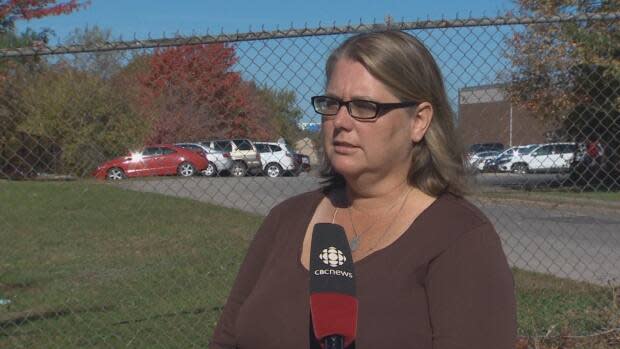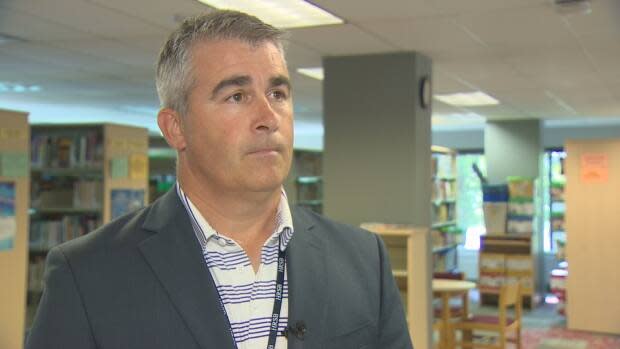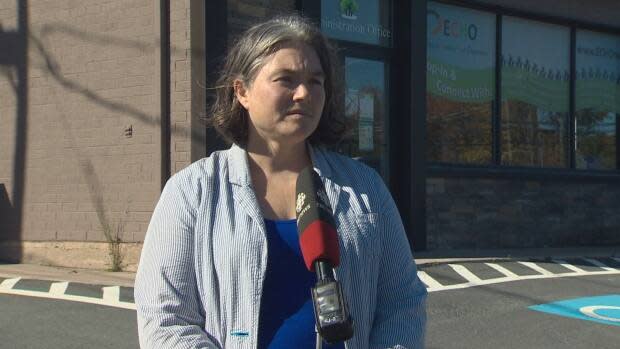Changes to school day leave some Halifax students stranded
Changes to the school schedule caused by COVID-19 are leaving some students in the Halifax area with abundant free time and no way to get to or from school.
With one subject in the morning and one in the afternoon, some students in grades 11 and 12 have half days when there is a free period.
Schools have instructed students they can spend this time in designated study areas of the school or go home.
Kristen Hollery of St. Paul's Family Resources Institute runs a food bank program to help students at J.L. Ilsley High School. Her daughter attends the school.
She said leaving students with open blocks of time during the school day can lead to problems, especially as the weather turns colder.
"It's going to make a really long day because if you don't have class from 9 a.m. until noon, you're either not going to come or you have a long time to wait, " she said. "And then it opens up cases where kids can get into trouble, whether intentional or not."

The school bus schedules haven't changed to accommodate the changes in class times, so students with free periods who take the school bus must either wait several hours for their class to start or several hours to go home after their class ends.
Doug Hadley of the Halifax Regional Centre for Education said the schools have assigned space for students with free periods to complete their school work or connect with teachers.
"If a student chooses to arrive late or leave early for whatever reason they are responsible for their own transportation," he said in an emailed response to questions from CBC.

Arranging transportation has proven to be an issue in areas where there is low family income and poor public transit.
Hollery said some parents are able to provide bus passes to their children, but some students live in areas not served by public transit.
"If their parents are on income assistance, they are entitled to bus passes. But if you live anywhere along the Sambro loop, there's no busing anyway. So it's not going to matter if you have busing or not. Your kids are going to be stuck unless they're inside Spryfield," she said.
Adrianna MacKenzie of Chebucto Connections, a community development group, said the cost of providing a bus pass can be a major hardship for some families.
"We know a lot of the families that we work with, they just can't afford that," she said, "Sixty dollars a month for a bus pass may seem like not a lot of money for some folks, but for some folks, that's a lot of meals. That's a lot of food on their table."

She's worried that the situation will lead to worse outcomes for at-risk students.
"What we want to make sure is that kids stay engaged in school," she said.
"We know that there are groups of students who are at higher risk to leave school early, or not complete school. And the more engaged we keep them in school, the more likely it is that they'll complete school and go on to other post-secondary options."
Hollery doesn't think the solution lies in expanding the school bus schedule because of the cost involved in running the buses and staffing. She said the solution lies in improving public transit.
MacKenzie said there's a need to address some of the unintended consequences of the changes to class times, but the changes were made for the right reasons.
"I understand why the scheduling is the way it is. And in terms of keeping kids safe, that's really important."
MORE TOP STORIES


